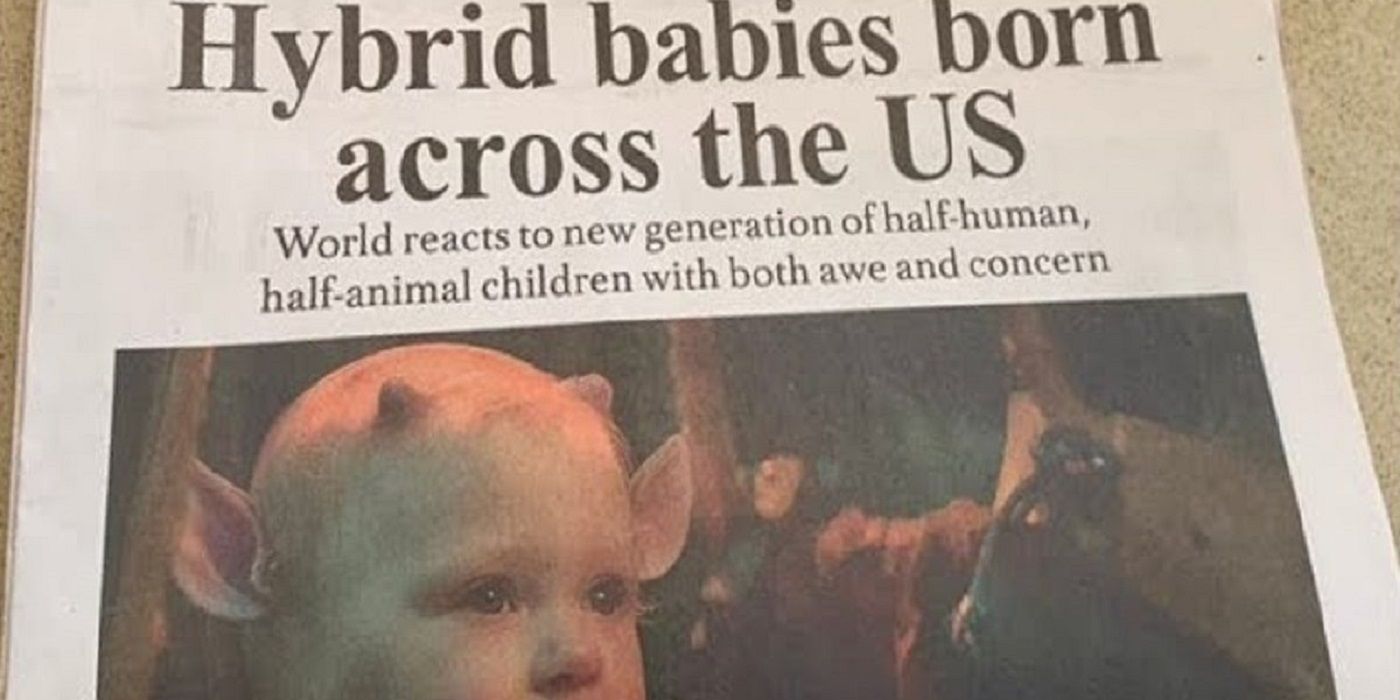Netflix has sparked some controversy over its ad campaign for the new streaming series, Sweet Tooth, where the company has, in effect, "taking over" the front page of Gannett's USA Today newspaper with a giant ad for the series.The giant ad is mocked up to make it look like it is a real edition of USA Today, only one that is tied into the events of the Sweet Tooth series (which is based on the acclaimed Vertigo comic book series by Jeff Lemire), with a headline that reads "Hybrid babies born across the US" with a sub-headline of, "World reacts to new generation of half-human, half-animal children with both awe and concern." The concern from media critics is that USA Today is putting its respectability on sale in the making of this ad, as at first glance, it appears as though USA Today, a fairly well-respected newspaper, is suddenly trading in the sort of sensationalist reporting that you would see in some of the disreputable newspapers that you see while waiting to check out at the local supermarket. Former Gannett employee Adam Weinstein delivered the harshest critique...
However, there were a variety of harsh critiques over the ad. Journalist John Tierney tweeted, "I was scanning front pages at work yesterday and stopped in disbelief at this @USATODAY ad. This wasn’t just in the paper. It was was *on top* of the actual front page." Chris Vickery tweeted, "So... USA Today (decently respected newspaper) has sold ad space where the newspaper's front page headline normally appears.
The advertiser who bought that print space has filled it with a half-human half-animal "hybrid babies" claim.
Is USA Today taking a cyanide pill? *cringe*"
TV news anchor Pat Kiernan tweeted, "Still can’t quite believe that @USATODAY allowed the real paper to be wrapped in a fake paper about a world where people have grown antlers. (It was an ad for @SweetTooth on Netflix with minimal disclosure.)"
The criticisms seem to be evenly split online between USA Today looking foolish for the sake of an ad and USA Today risking misinformation by allowing an advertisement to appear on the front page of the paper pretending to be news. A lot of critics feared that this was a slippery slope for literal "fake news."
Source: PopCulture.com

